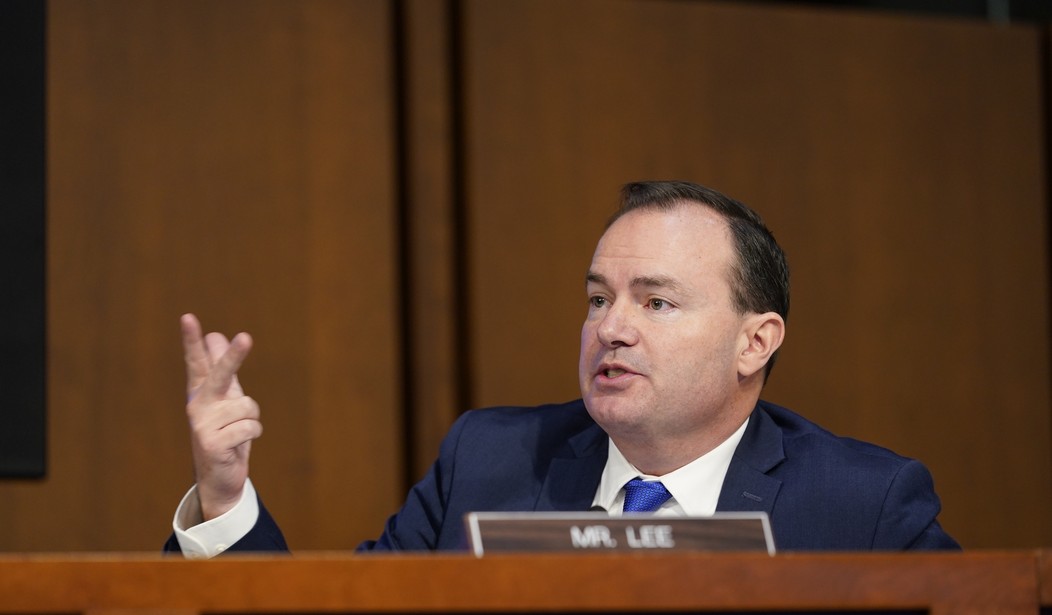The federal government spends too much – in fact, it spends so much it has to steal from future generations to pay for its ongoing binge. Worse, its propensity to borrow huge amounts of money is increasing. We simply can’t
Let’s review.
Since 1939, federal law has mandated that the federal government can only borrow up to a certain amount of money. For the first two centuries of the republic, the government’s accumulated debt waxed and waned. The debt reached $1 trillion for the first time in 1981, cracked the $5 trillion barrier in 1996, and hit the $10 trillion mark in 2008.
It took us 220 years to accumulate $10 trillion in debt. It’s taken us just 15 years since then to triple that debt, to $31.4 trillion.
Worse, the Congressional Budget Office projects that on our current course of spending, our national debt will hit the $50 trillion mark in ten years.
That’s not sustainable. Clearly, we have to get spending under control.
Yet President Biden and his congressional Democrat allies refuse even to acknowledge the depth of the problem, let alone address it. Instead, they demand that the Republicans who control the House of Representatives must vote to raise the debt ceiling in what they call a “clean” bill – that is, without adding any extraneous provisions, like spending cuts, or structural budget reforms.
Biden and his congressional Democrat allies were counting on disarray in GOP ranks. Biden didn’t believe House Speaker Kevin McCarthy would be able to rally his GOP allies behind a bill to raise the debt ceiling at all, let alone a bill that raises the debt ceiling even as it cuts spending. Biden was confident McCarthy would fail, leaving a “clean” debt ceiling bill the only option.
Recommended
McCarthy blew up Biden’s plan when he successfully rallied a majority of the votes on the House floor for his debt ceiling bill two weeks ago.
Yet McCarthy’s success was not, by itself, enough to grant Republicans victory on the debt ceiling fight. It was necessary, but not sufficient.
What was also needed as McCarthy begins the task of negotiating with Biden was a show of solidarity from his GOP colleagues on the other side of the Capitol. After all, conventional wisdom – and, apparently, Biden and his congressional Democrat allies – believed all along that in the end, it would be Senate Republicans, led by the veteran Mitch McConnell, who would ultimately cave to Biden’s demands and cut the deal.
McConnell for months has insisted otherwise, telling anyone who would listen that this debt ceiling negotiation will be between Biden and McCarthy, and McConnell will be on the sidelines. No one seemed to believe McConnell.
Enter Utah’s Mike Lee, a third-term constitutional conservative. Lee took the reins and wrote a simple letter to Senate Majority Leader Chuck Schumer declaring that “The Senate Republican conference is united behind the House Republican conference in support of spending cuts and structural budget reform as a starting point for negotiations on the debt ceiling … The House has taken a responsible first step in coming to the table with their proposals … As such, we will not be voting for cloture on any bill that raises the debt ceiling without substantive spending and budget reforms.”
And then Lee got 42 of his fellow Republicans – including, importantly, McConnell and every member of McConnell’s leadership team – to add their signatures to his letter, thereby making it clear to Schumer, and Biden, that no debt ceiling bill would even make it to the floor of the Senate unless it included “substantive spending and budget reforms.”
Those “substantive spending and budget reforms” are necessary. Earlier this week, the Congressional Budget Office released its review for April. The data is troubling – federal outlays continue to grow, even as tax revenues decrease. April revenues are down 73 percent from a year earlier. Meanwhile, spending is up 12 percent compared to a year ago; entitlement spending is up 11 percent; and interest payments are up 40 percent, thanks to the higher interest rates necessitated by the Federal Reserve’s effort to reduce the inflation ignited and fanned by the reckless spending.
Lee’s letter closes the loop and erases any remaining doubt: House and Senate Republicans are standing together, insisting on spending cuts and budget reforms as a condition of their support for raising the debt ceiling.
Good for Lee. Even better for America. The Lee Letter may be just the cudgel McCarthy needs as he enters crucial negotiations with Biden.

























Join the conversation as a VIP Member